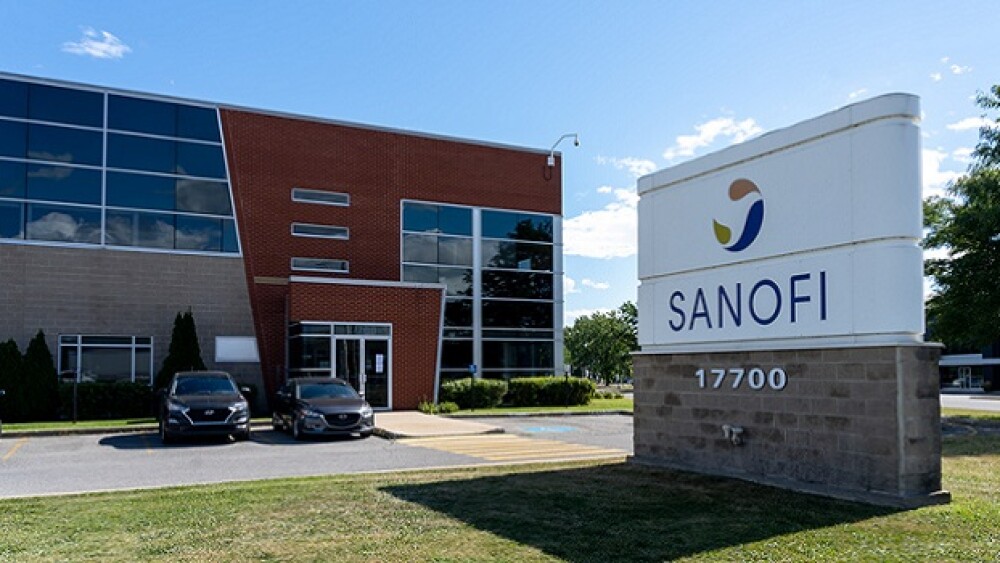In a Phase II study, Sanofi and Denali’s RIPK1 inhibitor SAR443820/DNL788 failed to meet the primary endpoint of improved functional performance in amyotrophic lateral sclerosis patients.
Pictured: Sanofi distribution center in Canada/iStock, JHVEPhoto
Sanofi-partnered Denali Therapeutics reported on Friday that its investigational amyotrophic lateral sclerosis therapy fell short of its primary efficacy endpoint in the Phase II HIMALAYA study.
The announcement, made in an SEC filing, was scarce with details or data. The companies only said that the candidate, dubbed SAR443820/DNL788, “did not meet the primary endpoint of change in ALS Functional Rating Scale-Revised,” which is a validated tool to assess the severity of amyotrophic lateral sclerosis (ALS) and monitor a patient’s functional performance.
Sanofi plans on presenting findings from HIMALAYA at an upcoming medical congress, according to the SEC document.
The partners did not reveal their plans for SAR443820/DNL788 in ALS but the candidate remains in development for multiple sclerosis, where it has first-in-class potential. In October 2023, Sanofi presented data for SAR443820/DNL788 at the 9th Joint European and Americas Committee for Treatment and Research in Multiple Sclerosis (ECTRIMS-ACTRIMS) Meeting.
SAR443820/DNL788 is a small molecule blocker of the RIPK1 protein, which is a crucial player in the signaling cascade involved in inflammation and cell death. According to Denali’s website, SAR443820/DNL788 is designed to be able to penetrate the central nervous system, where heightened RIPK1 activity is believed to contribute to neuroinflammation and cell necroptosis driving neurodegeneration.
Sanofi and Denali are developing SAR443820/DNL788 under a 2018 partnership, which gave Denali $125 million upfront. However, the partnership has run into several clinical hurdles that have led to suspended development programs.
In June 2020, Sanofi and Denali posted disappointing Phase Ib data for DNL747—which was the initial highlight of the 2018 pact—in Alzheimer’s disease and ALS. DNL747, also a RIPK1 inhibitor, showed dose- and duration-dependent toxicities in monkey studies that would make it difficult to scale dosing in humans.
The companies were forced to suspend the development of DNL747 and instead channel their resources into DNL788.
In October 2023, Sanofi also discontinued the development of the second RIPK1 inhibitor under the 2018 agreement—dubbed DNL758—in cutaneous lupus erythematosus. The decision came after a Phase II proof-of-concept trial fell short of its primary endpoint.
Sanofi holds the sole responsibility for DNL758’s development and is still currently running a Phase II study of the candidate in ulcerative colitis.
Tristan Manalac is an independent science writer based in Metro Manila, Philippines. Reach out to him on LinkedIn or email him at tristan@tristanmanalac.com or tristan.manalac@biospace.com.






